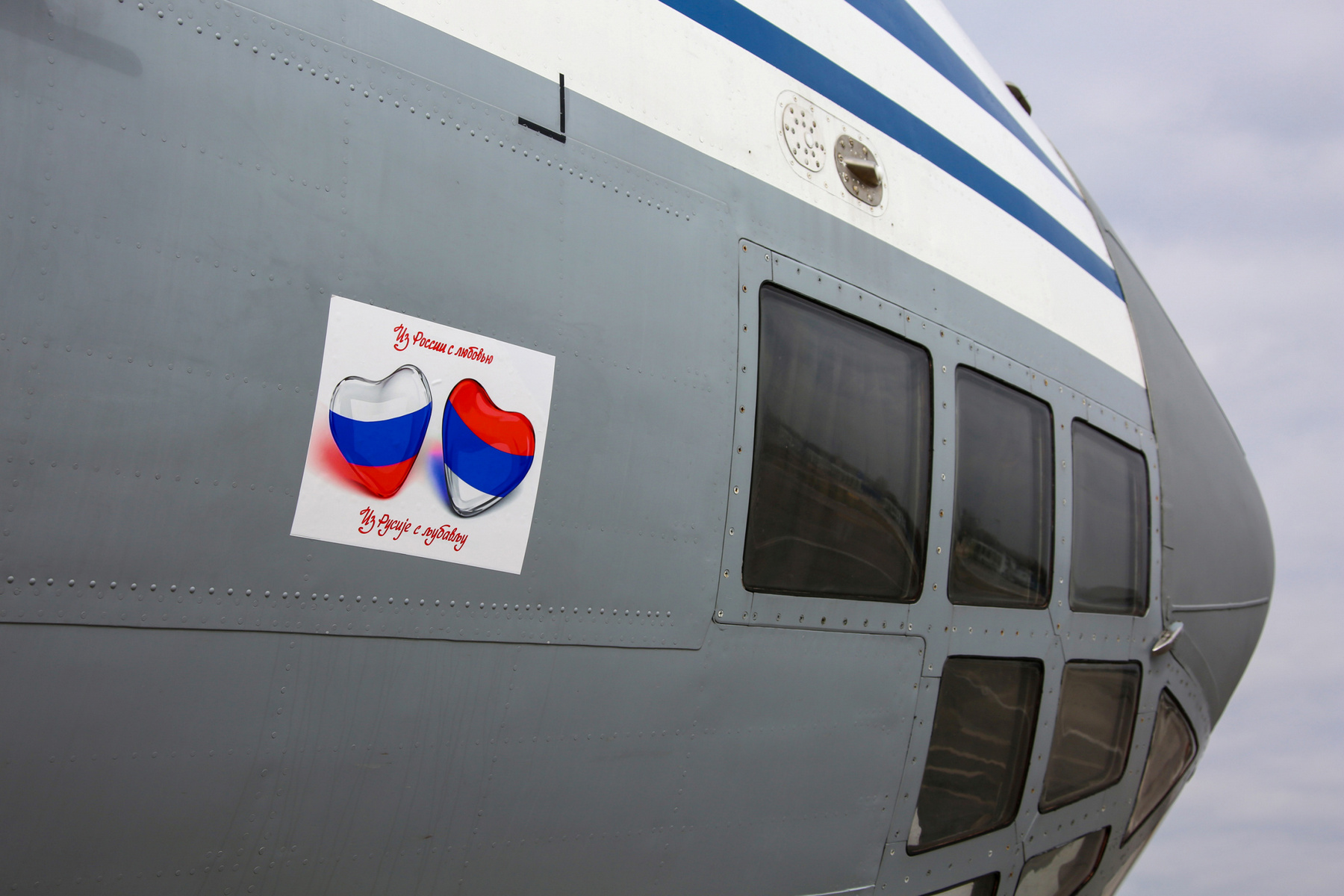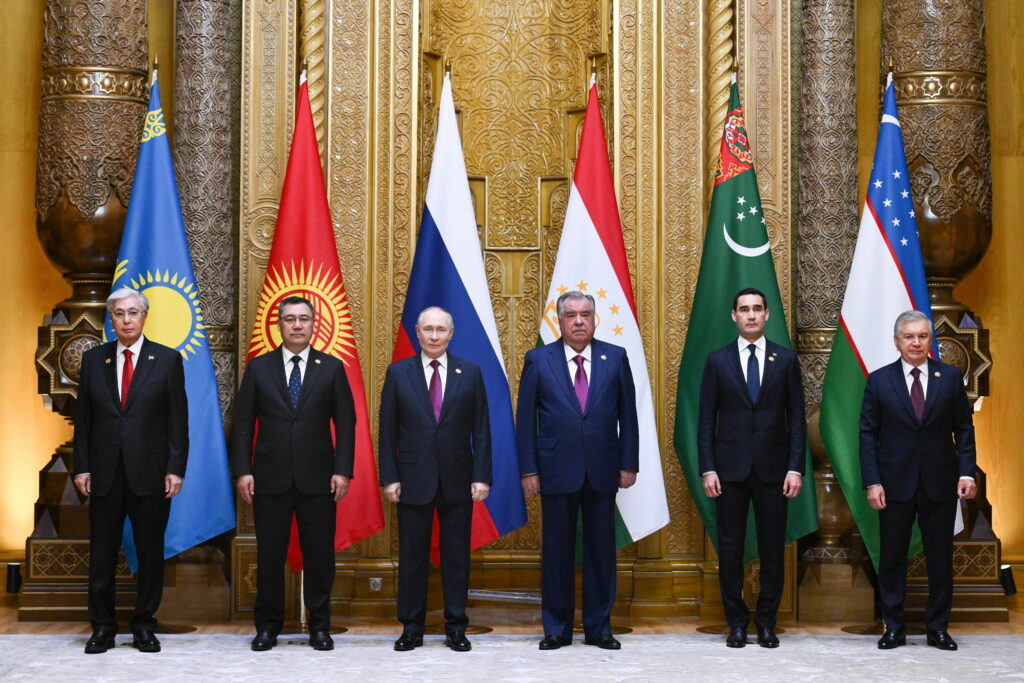A large-scale Russian campaign to assist coronavirus-stricken countries ran into an unexpected obstacle in the Balkans. In early May, the authorities of Bosnia and Herzegovina (BiH) refused entry to a convoy of Russian healthcare professionals. The group of 24 physicians and five military vehicles were heading towards Mostar to disinfect the local hospital. Shortly before that, another Russian group had visited the country on a humanitarian mission. That first mission had been publicised by Milorad Dodik, the Kremlin’s main ally in the region. The denial of entry to Russian healthcare professionals is a result of domestic disagreements that Moscow tried to turn to its advantage amid the pandemic. As a result, Russia was accused of disregarding the state authorities, showing disrespect for sovereignty and fuelling antagonisms.
It is not so easy to provide humanitarian aid to a country which remains divided 25 years after the end of a civil war. For one, there is no common political and economic space or common foreign policy in BiH. This is due to the specifics of the country’s post-war structure: BiH comprises two separate entities, Republika Srpska and the Federation of Bosnia and Herzegovina. It’s easy to get trapped in the country’s complex decision-making system, because a policy of obstruction and mutual accusations is still widely used by the elites representing Bosnian Muslims, Serbs and Croats.
Republika Srpska (RS) and the BiH Federation have different views when it comes to the Kremlin’s policies to strengthen the Russian presence in the region. Moscow can always count on a warm reception for any of its initiatives in RS. The BiH Federation, on the other hand, prefers to keep its distance. Russia has failed to establish significant economic, political or humanitarian ties with the Federation in the post-war period. And it is RS (49% of the country’s territory) which has absorbed most of Russia’s investment.
In May, Sarajevo gave Moscow the clearest signal ever that its increased influence was undesirable. The circles that Russian diplomacy failed to outwit with its humanitarian forced march to Mostar, located in the Federation, believe that the Russian factor complicates an already tense situation. Having rejected a request to allow entry to a military-medical brigade from Russia, Sarajevo made it clear that Moscow should address the central authorities and seek more reliable partners when it comes to such sensitive issues.
The Kremlin prefers to deal with the most influential representatives of the Serb and Croatian communities, Milorad Dodik and Dragan Čović. Both politicians are de facto opponents of the so-called ‘Bosniak bloc’ in domestic politics. They are the ones who lobbied for the involvement of Russian healthcare professionals. After the successful disinfection operation in Republika Srpska, Dodik, a member of the BiH Presidency, recommended Russian physicians’ experience to the other part of the country, the Federation. So Čović, the head of the upper house of the BiH parliament, contacted the Russian Foreign Ministry requesting aid.
Then, the Russian medical brigade was not allowed to cross the Bosnian border. As it turned out, the Russian embassy’s request to allow the convoy was declined by Fahrudin Radončić, BiH’s Minister of Security. (Radončić is one of the most influential political leaders among the Bosnian Muslims). He stated that the issue was under the jurisdiction of the Presidency of BiH, which makes decisions based on the consent of the representatives of all three parties: Bosnian Muslims, Serbs and Croats. Then, Chairman of the Presidency Šefik Džaferović informed Russia that his country was capable of coping with disinfection itself.
Interestingly, aid arriving in Bosnia from Azerbaijan caused no public controversies. As was officially stated, it had been agreed to by the Bosnian Foreign Ministry, the Ministry of Security and the Presidency. Humanitarian convoys from Croatia and Austria were also allowed.
The Russian Embassy showed its perplexity. It denied all implications that the Russian healthcare professionals had to fulfil ‘other tasks’ in Mostar. Moscow wanted to show it could overcome domestic divides, and offer much needed help in countries usually assisted by the EU and NATO. However, relying on favourite partners proved insufficient. The successful implementation of humanitarian and political initiatives in the Federation (with a predominantly Muslim population) should rest on closer contacts with the central government in Sarajevo and more friendly bilateral relations.
On one hand, Russian officials claim to respect the sovereignty and territorial integrity of BiH. On the other, they support Dodik’s initiatives meant to disintegrate the country. Such discordant gestures are also typical of foreign policy. Russia says it leaves it to its partners to choose how to ensure their country’s security. At the same time, Moscow is conducting a tough campaign against NATO enlargement in the Balkans. It declares that it will have to react to the enlargement process, which could undermine Russia’s interests. Here Russia ignores the arguments of the Balkan countries. Namely, that these are geographically distant from Russiaand need to protect themselves from each other after a series of conflicts.
The anti-NATO rhetoric has become tougher in the aftermath of the 2014 Crimean conflict. In the late 1990s, Russian diplomats claimed that despite the overall negative attitude to NATO enlargement, there was ‘some understanding’ of the Bosnian ambition given the consequences of the war and the nature of the conflict’s resolution, in which NATO played a key role. Even if ‘some understanding’ did exist back then, it evaporated under Putin.
The withdrawal of Russian peacekeepers in 2003 might have given the impression that Moscow had lost interest in Bosnia. However, Russia has been very active in the Peace Implementation Council (PIC), using the Bosnian agenda as a platform for disputes with Western partners. This came to the fore after the annexation of Crimea. Then, Moscow began openly discrediting the High Representative for Bosnia and Herzegovina (the international community’s governance body for BiH, which oversees the implementation of the Dayton Agreement). Amid the 2014 international relations crisis, Russia abstained from voting in the UN Security Council on renewing the mandate for the NATO-supported EUFOR forces. It was as if Moscow was showing its readiness to review the issues of war and peace.
Then, Russia voted against a British draft resolution condemning the Srebrenica genocide, even though it had not challenged the 2007 verdict of the International Court of Justice and had used this concept when justifying its actions against Georgia in 2008. Next, Moscow supported the controversial 2016 referendum on celebrating the Day of Republika Srpska, held by Dodik in spite of US and EU objections. Before that, Dodik had visited the Kremlin.
All Russia’s ideas are supported by Republika Srpska, and the Kremlin reciprocates. The local Serb elite has built close economic and political ties with Moscow. Dodik — an opponent of NATO enlargement and the only high-profile politician in the Balkans who supported Crimea’s annexation — is regularly received in the Kremlin. His political power is backed by Russian investments, mostly in Republika Srpska’s energy sector (investments worth at least EUR 250mn).
Russian delegations were frequent guests in Republika Srpska in the run-up to the 2018 election, which resulted in Dodik becoming one of three members of the BiH Presidency. Russian Foreign Minister Sergey Lavrov, then-governor of St. Petersburg Georgy Poltavchenko and Chairwoman of the Federation Council Valentina Matviyenko were among those who paid visits to RS. Matviyenko’s visit was remarkable because of her eloquent anti-NATO speech and exceptional security measures.
In 2018, the Kremlin managed to delegate South Ossetian President Anatoly Bibilov to Republika Srpska for a visit without notifying the Bosnian Foreign Ministry. Although Bosnia and Herzegovina’s territorial entities do not make foreign-policy decisions, Moscow encourages Dodik to position himself as a regional politician. As a result, Russian diplomats have had repeated clashes with their partners from Sarajevo. The failure of the Russian medical mission to Mostar is due to a certain extent to the involvement of Dodik, who had recommended Russian aid to his opponents.
Unlike Dodik, Čović is little known to the Russian public, although he is an influential and experienced politician. Until recently, he was a member of the BiH Presidency. Čović was accused of abuse of power in several trials, and even dismissed from the Presidency following a decision by the international overseer. Čović, the leader of the Croatian Democratic Union of Bosnia and Herzegovina, is supported by the leaders of the Croatian Democratic Union of neighbouring Croatia. Before the most recent election he was openly supported by Kolinda Grabar-Kitarović, the Croatian president until early 2020, and Zagreb Mayor Milan Bandić, who had been awarded the Order of Friendship personally presented by Putin in 2018.
Čović has held on to the political leadership of the Croatian community of BiH for years. Thus, it seems that Moscow has banked on Čović as an important ally, meant to promote Russian influence and hinder Euro-Atlantic integration. It remains to be seen whether Čović himself finds these tasks interesting. Even so, his political opponents have already labelled him a Russian player.
In February, Čović visited Moscow at Valentina Matviyenko’s invitation. He met Deputy Foreign Minister Alexander Grushko, who is in charge of relations with European countries, the EU and NATO. Čović has not had other official meetings in Russia during his many years of political activity.
Some Balkan analysts believe that the potential alliance between Dodik and Čović, both of whom promote ideas of disintegration, albeit for different reasons, can destroy the Bosnian state. Although this scenario remains hypothetical, Moscow’s bet on these partners to promote its projects and ideas does nothing to increase Sarajevo’s trust in Russian soft power.
Was there even a single reason for the authorities in Sarajevo and their Western partners to contribute to the success of the largely unnecessary Russian humanitarian operation? Probably not. However, it could have become an opportunity to publicise yet another spectacular Russian action conducted under the noses of the ineffective EU and NATO, which abandoned their weaker partners to the whims of fate. Anyway, Russian propaganda makes no bones about the Bosnian state, describing it as a centre of radical Islam which impinges on local Serbs, and a failed entity on the brink of a new war.
Nothing will change in the foreseeable future: Moscow will feel at home in Republika Srpska. It will develop cooperation with Dodik and send delegations to pay tribute to ambassador Vitaly Churkin at his monument with an inscription ‘Thank you for the Russian «No”‘. But it will still be hard for Russian initiatives, including humanitarian operations, to reach the other part of the country.










